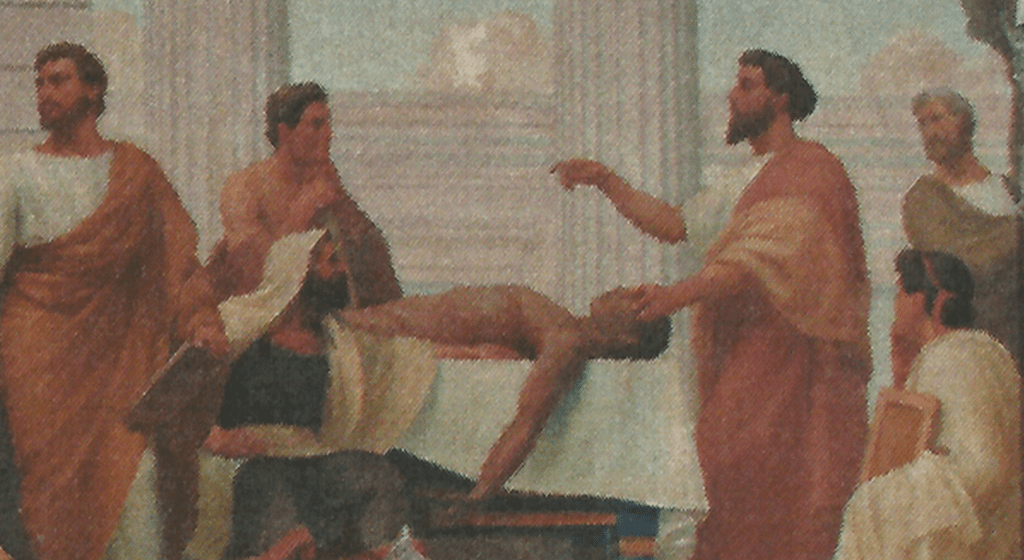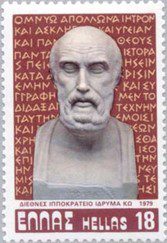Philip Liebson
Chicago, Illinois, United States

Detail of Scientific Medicine, Veloso Salgado, 1906. Via Wikimedia.

Although Andreas Vesalius has been considered the modern father of anatomy, long before his time there lived a Greek anatomist and physician, Herophilus (?335–255 BC), who was accused of human vivisection. He may be the true father of anatomy because of his contributions to the understanding and differentiation of organ systems. Born in Chalcedon, in Asia Minor, he went to Alexandria as a youth to begin his education. At the time, the famous Alexandrian library had about 700,000 scrolls, and eventually contributions were made by him. His mentor was believed to be Praxagoras, who had contributed to the differentiation of arteries and veins.
Herophilus practiced in Alexandria. His numerous works in papyrus stored in the Alexandrian library were lost when the library burned down in AD 391. He performed dissections of the human body despite it being considered a desecration and after his time was abandoned until the mid-16th century. At Oxford, human anatomy was not taught until 1624. He was thought to be the earliest to carry out autopsies to evaluate the course of disease.
At the time, it was believed that the atria were not part of the heart and that the pulse had no relation to the heartbeat. Herophilus disproved these misconceptions with his anatomic studies. He also differentiated nerves from blood vessels and indicated that nerves carried impulses, separating those spinal roots that carry sensation from those of motor fibers; also that damage to motor nerves caused paralysis. He also separated the functions of some of the cranial nerves.
He made initial accurate descriptions of the liver, the duodenum, and the pancreas. He provided accurate descriptions of the reproductive system, including the recognition that spermatozoa were produced by the testes.
His reputation was clouded, however, by physicians such as Celsus 250 years later, who charged him with carrying out dissections of persons who were still alive.
His aphorism as a guide to management of diseases stated that “wisdom is indemonstrable, art uncertain, strength powerless, wealth useless, and speech impotent if health be absent.”
Sources
- Bay NSY, Bay BH. Anat Cell Biol 2010;280-3.
- Dobson JF, Herophilus of Alexandria. Proc R Soc Med 1925;18:19-32.
- Robinson V. The Story of Medicine. New York: Tudor Publishing Company; 1931.
- Scarborough J. Celsus on Human Vivisection of Ptolemaic Alexandria. Clio Med 1976;11; 25-38.
PHILIP R. LIEBSON, MD, graduated from Columbia University and the State University of New York Downstate Medical Center. He received his cardiology training at Bellevue Hospital, New York and the New York Hospital Cornell Medical Center, where he also served as faculty for several years. A professor of medicine and preventive medicine, he has been on the faculty of Rush Medical College and Rush University Medical Center since 1972 and holds the McMullan-Eybel Chair of Excellence in Clinical Cardiology.

Leave a Reply